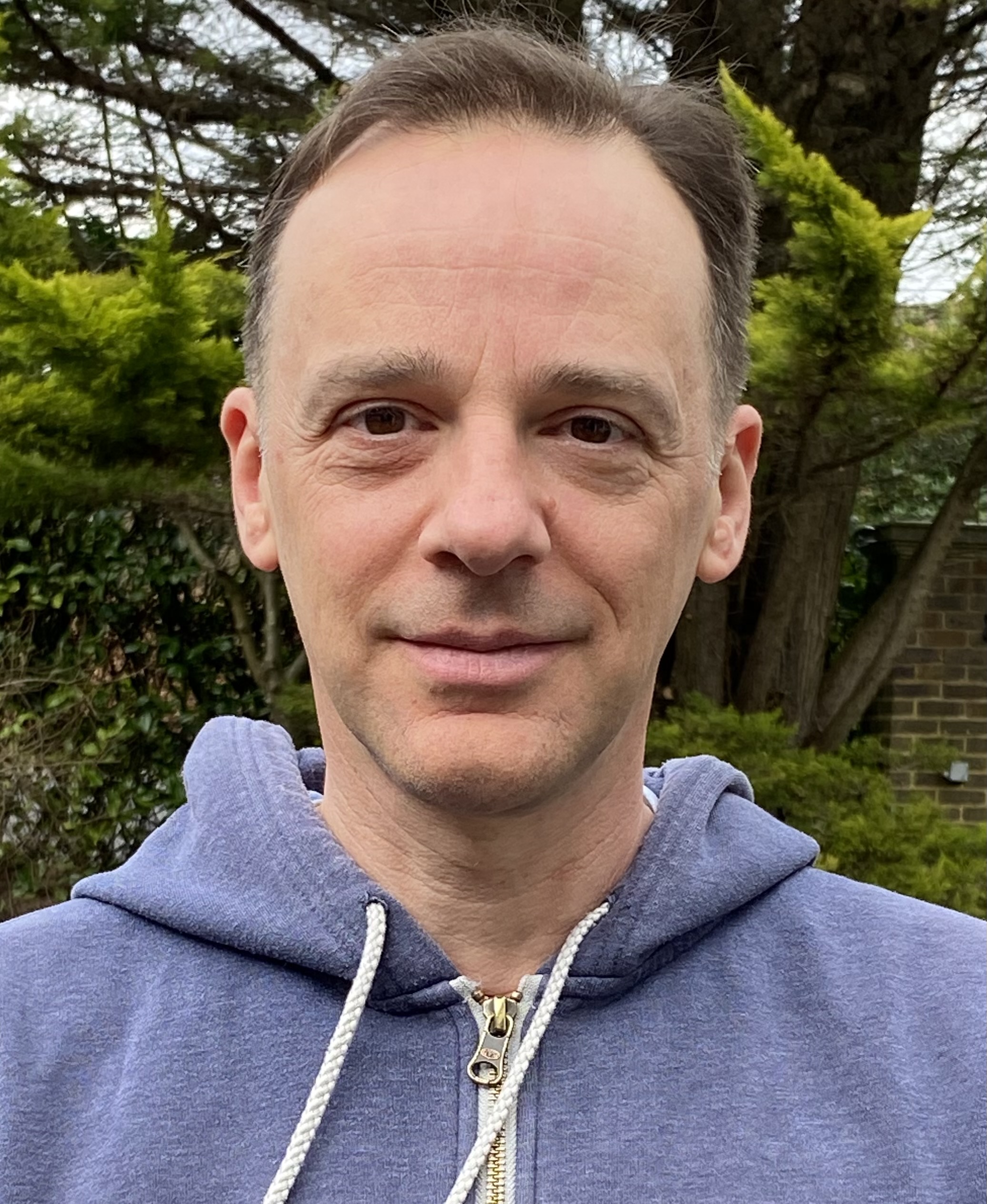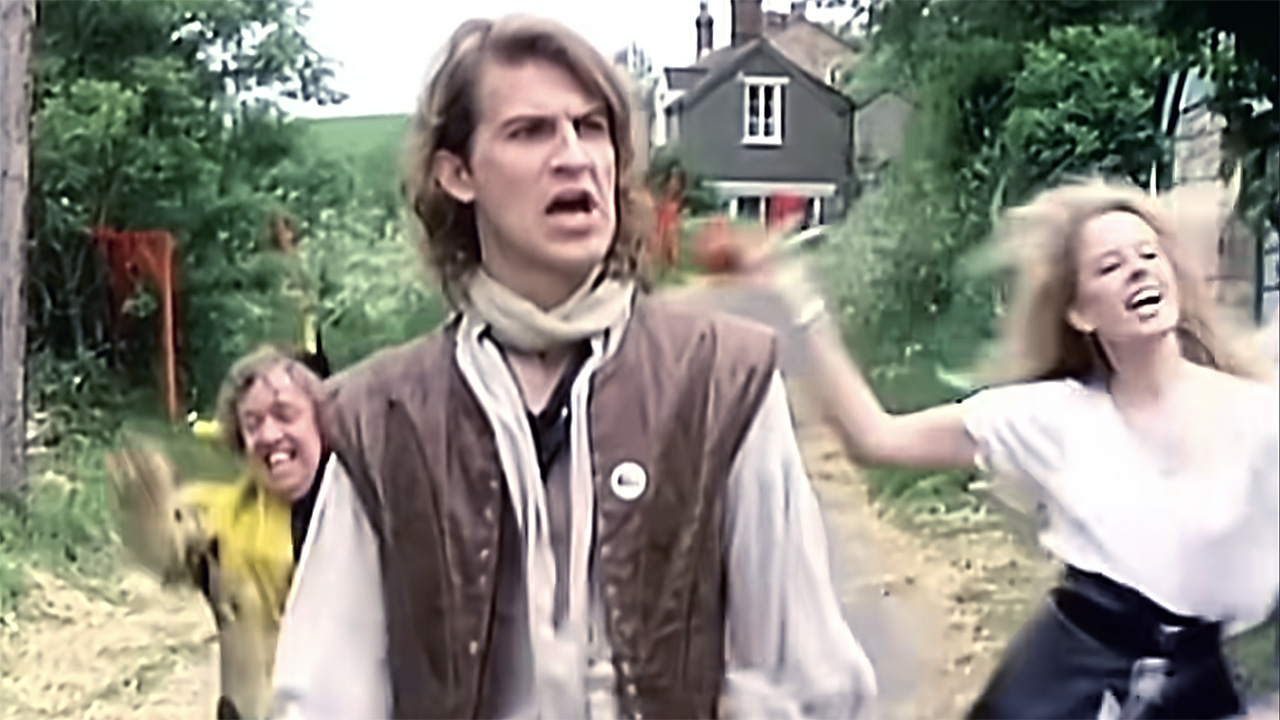“It’s an homage to all the fans who stayed with us for all these years.” Galahad and the story of The Last Great Adventurer
Galahad's first new album for five years, The Last Great Adventurer, showed the prog veterans to be in particularly fine fettle..
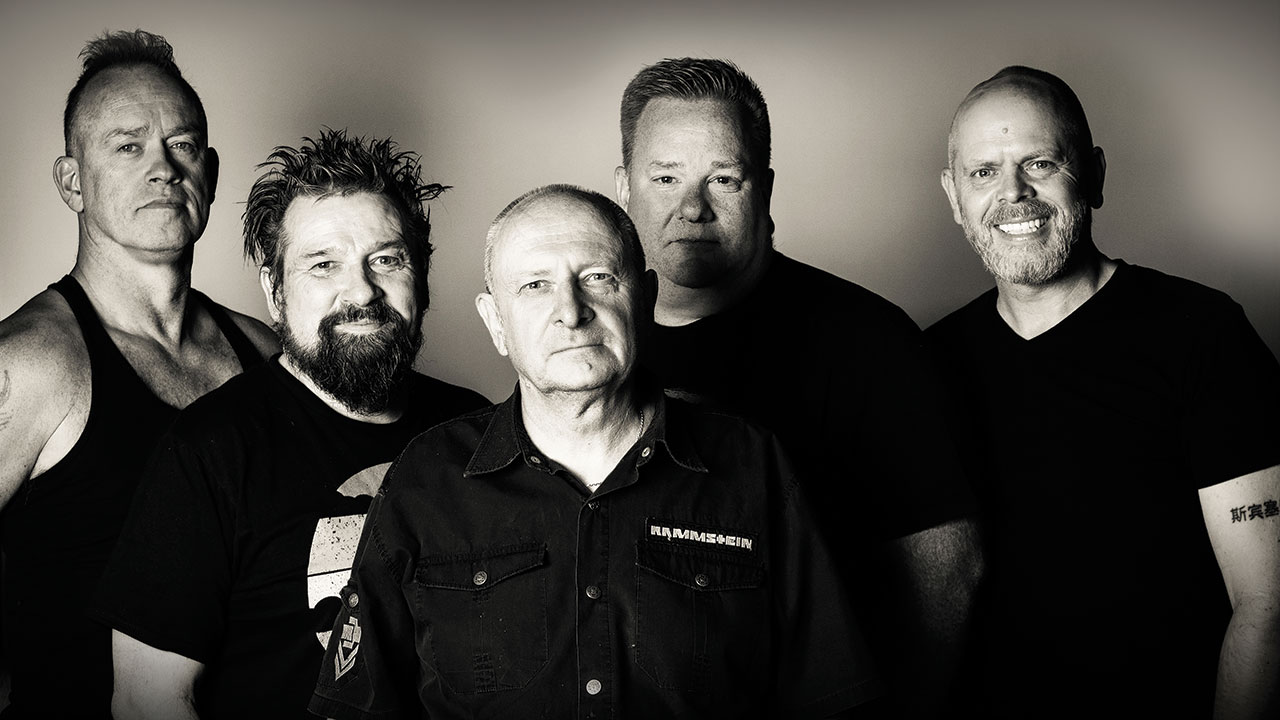
Galahad returned with their first studio album in almost five years with 2021's The Last Great Adventurer. Vocalist Stu Nicholson and keyboard player Dean Baker discussed the triumph of persistence over adversity with Prog.
An autumn mid-afternoon finds Galahad vocalist Stu Nicholson and keyboardist Dean Baker in a reflective mood. Nicholson is the Dorset-based band’s sole ever-present. While the singer has toiled away in the Galahad trenches since 1985, Baker is comparatively a mere stripling, having served only since 1997.
Galahad are not far shy of their 40th anniversary and their new album, The Last Great Adventurer, is their 11th studio release (not including the scores of tapes they issued earlier in their career). It’s a record that largely belies not only their longevity but also their early 1980s roots.
Following in the wake of early 80s prog bands such as Marillion, IQ, Pendragon and Twelfth Night – utter ‘neo-prog’ within Nicholson’s earshot at your peril – Galahad have certainly never attained anything remotely approaching the commercial success of Marillion nor the prog cognoscenti kudos enjoyed by Twelfth Night. However, for the band to have survived the slings and arrows of often outrageous misfortune over the last five decades is itself an extraordinary achievement. That’s testament to their collective resilience and in particular Nicholson’s determination to battle on. So in Galahad’s formative days, did the frontman ever envisage the band having such a lengthy musical career?
“Not in the slightest!” Nicholson says with a laugh. “When we were young, we were just playing music in pubs and having fun. We really didn’t think about longevity.”
Baker offers a different perspective: “I was just listening to [BBC broadcaster] David Dimbleby talking about being classed as royalty because he’s been around for so long. So if Galahad stick around long enough, perhaps we’ll be royalty one day too!”
While the vast majority of bands – progressive or otherwise – experience comings and goings, Galahad’s world was particularly rocked by two exits: one voluntary and one, sadly, involuntary. In 2015 Roy Keyworth, the band’s guitarist since 1985, quietly exited stage left. Indeed Nicholson hasn’t had any contact with his erstwhile musical partner since then and only in early 2017 did the band feel able to announce that Keyworth had departed.
Sign up below to get the latest from Prog, plus exclusive special offers, direct to your inbox!
“Roy was at a loss, but we were geared up for it because we were conscious that things were afoot and weren’t as they should have been,” Nicholson says. “Psychologically we knew it was going to happen at some point. Roy is one of those people who, when he stops doing things, stops completely. He doesn’t dabble.”
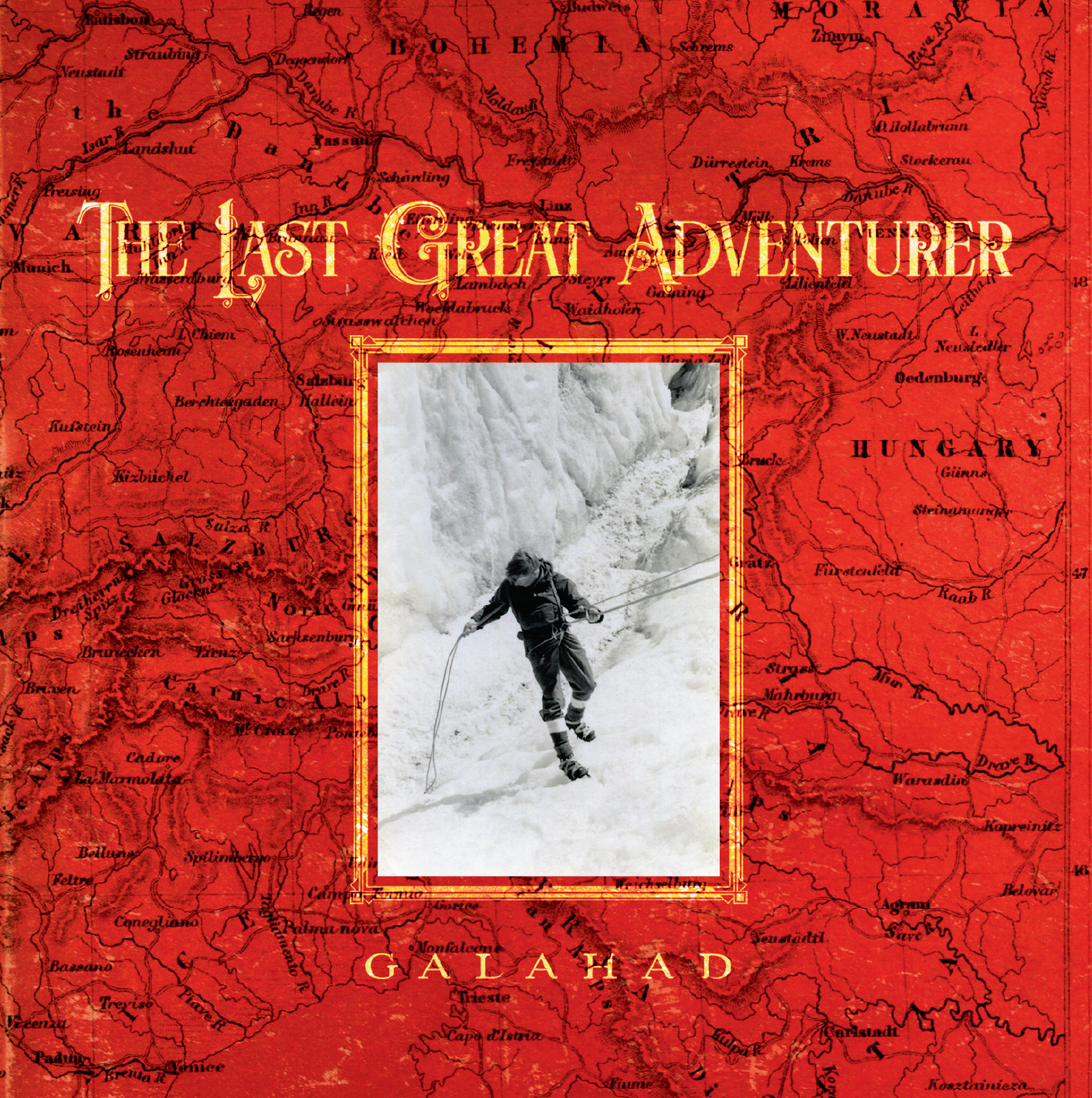
Baker suggests that the prior loss of bassist Neil Pepper, who died from oesophageal cancer in September 2011, represented a far more significant blow overall. “Roy’s sound was part of Galahad, but because of prior commitments he wasn’t always able to be with us as a unit in the studio. Whereas Neil was always extremely involved in the whole process – whether it was my keyboard parts, writing, production, artwork.”
Indeed Pepper’s commitment to the Galahad cause was such that two months before his death he was still working in the studio to record his bass parts for the albums Battle Scars and Beyond The Realms Of Euphoria, both of which were released in 2012.
“Neil was sat with the bass on his lap because he couldn’t stand up to play,” Nicholson recalls. “It’s my biggest regret with the band that he never got to see the final albums. But he was there until the bitter end.”
Nevertheless Galahad have persevered and indeed Baker describes the band’s current configuration – completed by drummer Spencer Luckman, bassist Mark Spencer and former bassist Lee Abraham, now on guitars – as “probably the most comfortable line-up we’ve ever had”. The keyboardist identifies two elements in this newfound stability, which has prevailed since 2017. “We actually all get on extremely well, but we’ve also now got a good, controlled environment.”
“We’re comfortable in our own shoes,” Nicholson elaborates. “We’re not trying to be something we’re not or do what other people think we should do. Although it’s always good to bring a few people along with you, we don’t write for the audience. We write for ourselves and simply do what we like doing. A lot of that falls within the prog domain; some of it doesn’t. And that’s when the hardcore dyed-in-the-wool prog fan complains that we’ve ‘gone a bit of dancey’!”
Regrettably, Galahad’s travails aren’t limited to the departures of Keyworth and Pepper and indeed continue to this day. Luckman – the band’s drummer since 1987 – has been facing significant health challenges. Having previously successfully overcome a brain tumour while the band were recording 2007’s Empires Never Last album, its re-emergence has subjected the drummer to further punishing rounds of chemotherapy, the most recent of which was completed earlier this autumn.
“Spencer has just had his scan results back and thankfully there’s been no movement or growth,” Nicholson explains. “So as it stands, it’s been good news but he is effectively still in recovery and needs to get his strength back.”
In that context, The Last Great Adventurer is all the more impressive as an album and positively fizzles with energy throughout. Taken at face value, Galahad’s name – originally coined by Keyworth – conjures up images of Arthurian legend and something musically antiquated. But that does The Last Great Adventurer a disservice, because the latest album sounds thoroughly contemporary.
“Roy named the band after a fruit and veg business and didn’t know who Sir Galahad was, which I thought was highly amusing. I had to explain the name to him and the fact it was related to Pendragon and all this Arthurian stuff.” When the band were recording 2007’s Empires Never Last, recognising the increasing juxtaposition between their name and their sound, they briefly contemplated a name change. Ultimately however they rejected a rebrand, in part fearful of sacrificing the name recognition they had spent so long building up.
“We were considering if we should change the name of the band or go fully down the prog route. We didn’t do either,” Baker remembers. “The discussion might have been slightly fuelled by alcohol!”
“We’re a modern rock band with a load of different influences,” Nicholson declares. “Yes, there are progressive influences, but we have other underlying influences as well and we use quite a lot of sequencers.”
As one of Galahad’s creative drivers, Nicholson points out that Baker’s background lies outside the progressive realm. “I was a prog virgin in 1996,” Baker discloses. “I had to do a load of research and bought loads of CDs – Pink Floyd, Yes, Genesis, etc. I liked some of them and didn’t like others. So I possibly go a bit off centre [musically] without realising.”
From Nicholson’s perspective, Baker’s atypical musical background is a major plus. “It’s great because it means we stand out a little bit from some of the more straight-down-the-road traditional progressive bands. We certainly have got prog overtones, but I don’t think they’re as deep as they were when we started.”
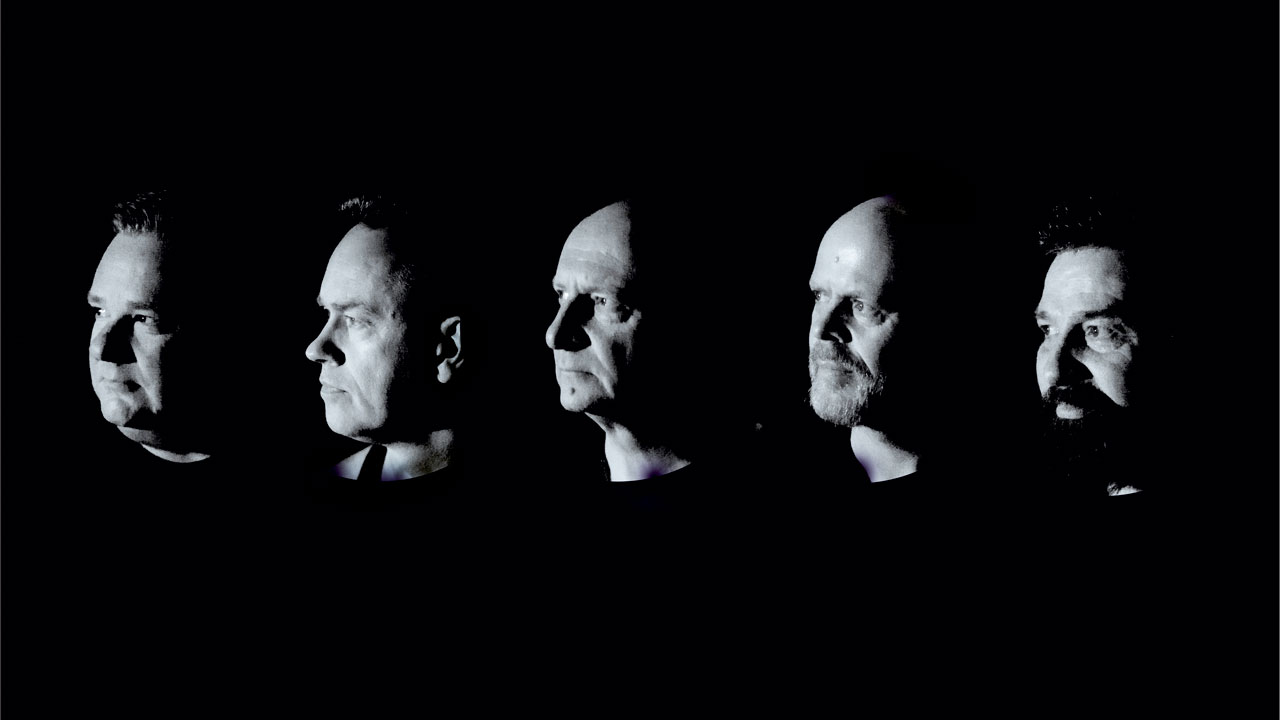
Sonically The Last Great Adventurer displays Galahad at their punchiest, an aspect for which both Nicholson and Baker are swift to credit their longstanding producer and engineer, Threshold guitarist Karl Groom. “Karl has become key to our sound,” Nicholson says. “I like brightish production with good separation so you can hear all the instruments. It can all get a bit muddy and murky if you aren’t careful. Karl is almost our sixth member, the George Martin of Galahad.”
Baker similarly enthuses about Groom’s contribution to Galahad’s studio recordings. “Karl has really helped to steer the ship in the recording studio. Where he’s really good is that we give him free rein. For this album I gave him everything and the kitchen sink in terms of keyboards, drum loops and sequencers. But I told him to only put in the keyboards or sound effects that he felt would do the songs justice and actually needed to be there. He’s judged that perfectly. I gave him a lot more audio files than are actually on the album.”
“Sometimes less is more,” Nicholson continues. “In the early days on the first album, we just threw everything in and it was a bit of a mess. Three of the band were still teenagers when we recorded it. We were young and naïve.”
The Last Great Adventurer opens with the upbeat Alive, which bristles musically with the aforementioned energy. “It’s actually a homage to all the fans who stayed with us for all these years,” Baker explains of its lyrics.
“I wanted to acknowledge those people who have followed us from the start,” Nicholson adds. “We were in our early 20s when we started the band, and a lot of the fans who are still on our mailing list and who come and see us when we play have grown with us. They’re in their 50s and 60s now. Back in the day, I never imagined that would ever happen. ‘Prog’ really was a dirty word then. These days it’s part of the fabric in rock music circles – people don’t wince if you say, ‘We’re a prog rock band.’ But in the 80s, it was the equivalent of buying a porn mag. Put it in a brown paper bag so that no one can see it; don’t tell anyone! Many years ago Elvis Costello said in an interview that he was a massive Genesis fan in the 70s, but he didn’t dare tell anyone because he would have lost all credibility.”
While Alive celebrates Galahad’s fans, the 10-minute title track is a touching tribute to Nicholson’s 87-year-old father Bob. Nicholson Senior’s mountaineering and design engineering exploits are visually documented on the album cover and within its booklet respectively. The former shows Bob climbing Austria’s tallest peak, Großglockner, while the latter includes an image of Concorde’s nose, which he helped to design.
“I’ve always wanted to write something about Dad because he’s had an interesting life,” Nicholson explains. “Dean sent me the music for that song and it inspired me to write the chorus. And then I found photos of my dad climbing various mountains all over Europe. He was actually invited to be part of an expedition to Everest with Eric Shipton, a famous English climber in the 40s and 50s. Many people who used to go climbing and adventuring were rich and could just drop everything. But Dad was a young working-class guy trying to make money to keep his family going because he lost his dad in the 50s. So unfortunately he didn’t go.”
Led by Nicholson Junior, Galahad continue to scale their own creative mountain in fearless style.
Nick Shilton has written extensively for Prog since its launch in 2009 and prior to that freelanced for various music magazines including Classic Rock. Since 2019 he has also run Kingmaker Publishing, which to date has published two acclaimed biographies of Genesis as well as Marillion keyboardist Mark Kelly’s autobiography, and Kingmaker Management (looking after the careers of various bands including Big Big Train). Nick started his career as a finance lawyer in London and Paris before founding a leading international recruitment business and has previously also run a record label.
